The Education Channel: the task is ongoing
The progress and development of a country is determined by the educational level and analytical sense of its population. This […]
The progress and development of a country is determined by the educational level and analytical sense of its population. This allows its citizens to contribute ideas for the improvement of existing conditions, as well as to contribute to the research and innovation of the great challenges that modernity demands.
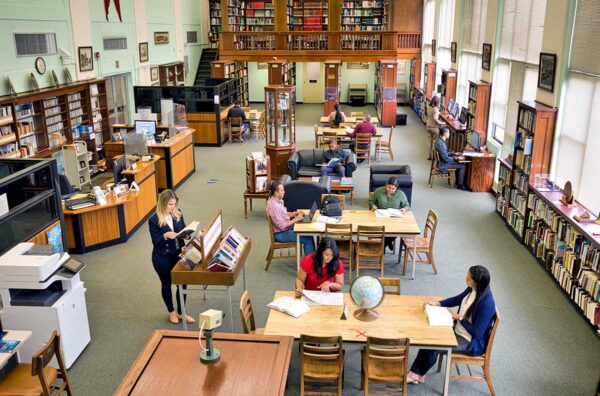
Although the Panama Canal is not strictly speaking an educational institution, it is an educational institution in terms of its commitment to the country, to preserve its history, preserve the knowledge of the operation and administration of the waterway, and ensure that future generations will benefit from the accumulated experience and capacity of those who administer it today.
In this article, we will briefly outline the main ways in which the Canal contributes to the education of our society, and from different perspectives.
A century-old library
Since its inauguration, the Panama Canal has been the subject of studies and a source of reference for experts and researchers. Precisely for this reason, it was necessary to establish a library more than 100 years ago, originally equipped with technical documents of the Canal, to contribute to the training of professionals in different branches of engineering. Over time, texts from different disciplines have been part of this library, renamed since 2005 as President Roberto F. Chiari, in honor of the Panamanian president who faced the crisis of January 9, 1964.
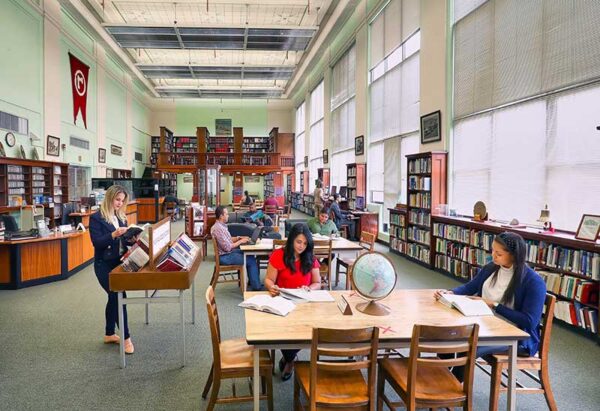
Today, the library is open to the general public, and it is common to see nationals and foreigners consulting the more than 53,000 archives, including photos, microfilms, books and maps, among others. In addition, this center has a high-level electronic search engine called Alexandria that allows a more expeditious reach of the documents that need to be consulted; this, without forgetting to highlight the specialists who work there and who have vast knowledge in the search for information.
The President Roberto F. Chiari Library is part of the Ascanio Arosemena Training Center, located in Balboa, and is open to the public, Monday through Friday from 7:00 a.m. to 3:30 p.m.
Continuous Training
All organizations need professionals capable of mastering updated technical knowledge. In this sense, many companies provide their personnel with comprehensive continuous training, since the needs are particular. Such is the case of the Panama Canal, where more than half of its personnel perform technical or specialized tasks.
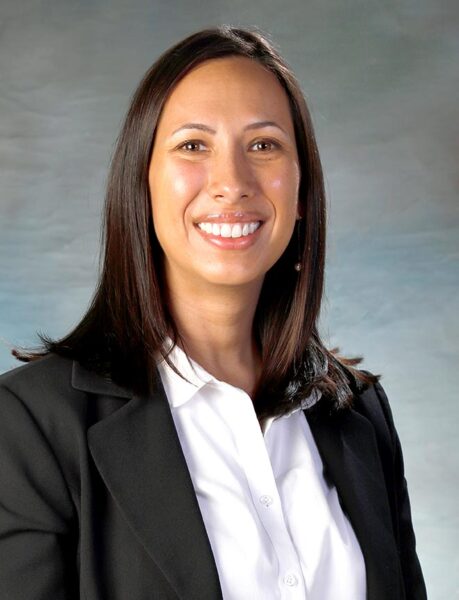
In the words of Adriana Quintero, manager of Human Capital Transformation of the Panama Canal, “organizations, like the world, are constantly transforming, which means that human capital must also be able to transform at the same pace to achieve the required results as a business. The 21st century requires us to put the worker and the client at the center, strengthen culture and communication, focus on training and retraining, and promote a more empathetic leadership”.
The transformations Quintero refers to are linked to the Canal’s vision of sustainable development. The waterway committed in April 2021 to adopt carbon neutrality by 2030. It is investing in the modernization of its equipment and infrastructure to meet this goal. In parallel with this mega-initiative, the Canal is also allocating resources for the preparation of its personnel, who will be responsible for the execution of these sustainable programs.
From the roots
For the Panama Canal, youth is its main objective when it comes to promoting knowledge of the waterway.
It is, in fact, a responsibility that transcends in the lives of its beneficiaries and seeks to develop leadership skills and a critical sense. Such is the case of the Youth Network for the Environment and the Canal Watershed. It consists of 120 young people between 15 and 30 years of age who discuss issues of generational relevance, such as the conservation of the watershed’s natural resources.
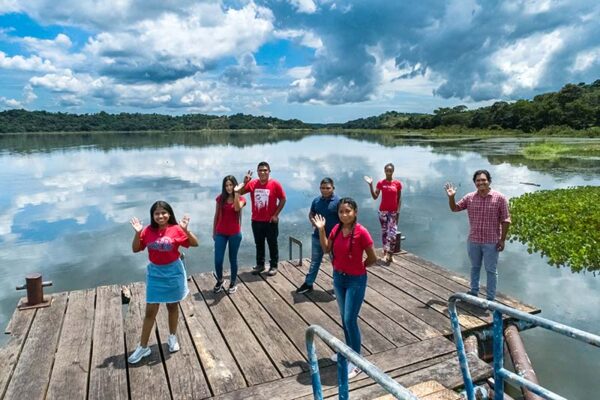
Last year, these young people developed six projects which, in fact, frame the objectives of the waterway with the preservation of the water resource.
Recently, Canal TV launched a series of educational chapters entitled: Así Pasó, which provide, through an interesting narrative, different historical events that defined our identity as a Canal country. The podcast is available on Spotify and Youtube platforms and on Canal TV screens.
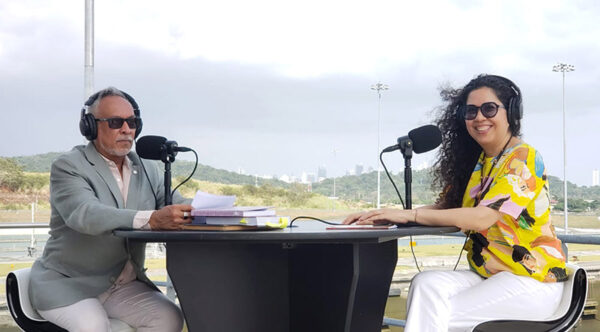
We can also highlight the educational modules that are rebroadcast on Canal TV screens, which present different perspectives of the Panama Canal: history, operation, administration, the Canal and the world economy, water resources and future projects. This initiative was developed with the support of the Ministry of Education at the height of the pandemic, to contribute to the continuity of virtual education for more than 800,000 students.

Getting back to normal
With the gradual opening of external and public activities, the Panama Canal has adapted to the new regulations for the prevention of COVID-19, while maintaining more direct contact with the community, and this is its main interest. In the meantime, the Canal will continue to develop more ways to encourage education, research and the transmission of knowledge at all levels.